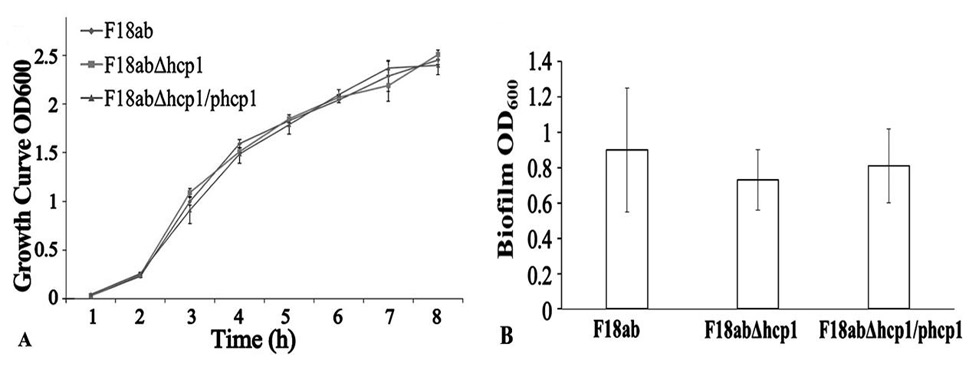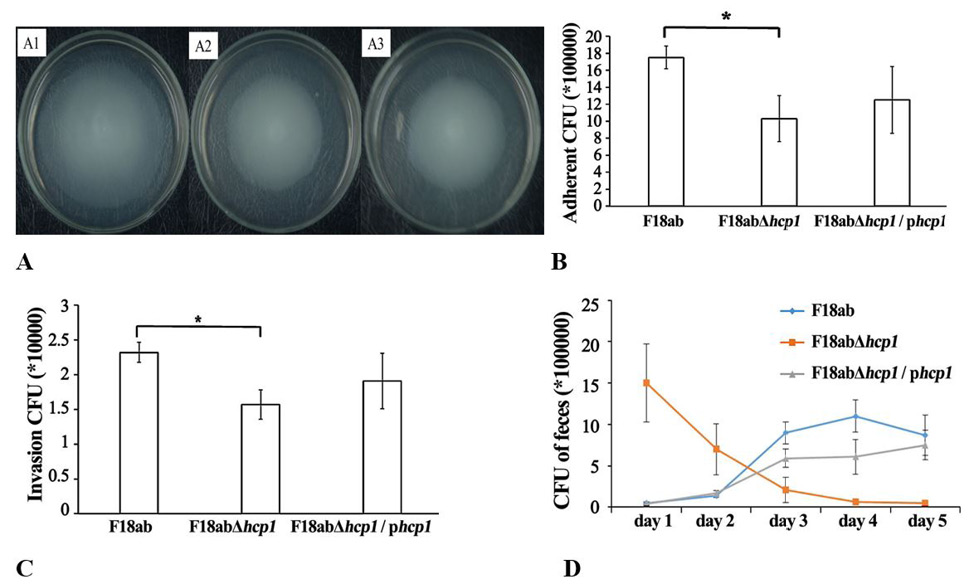Effect of hcp1 of the Type VI Secretion System on Biological Characteristics of F18 Shiga Toxin-Producing Escherichia coli
Effect of hcp1 of the Type VI Secretion System on Biological Characteristics of F18 Shiga Toxin-Producing Escherichia coli
Yang Yang1,2, Hong Zhou3, Ji Shao1,2, Xinyi Zhang1,2, Pengpeng Xia1,2, Mingxu Zhou4,5, Qiangde Duan1,2 and Guoqiang Zhu1,2*
The motility, adherence and colonization assays of bacterial. A, Flagella related motility assays. A1: F18ab; A2: F18abΔhcp1; A3: F18abΔhcp1/phcp1. B, Adherence ability towards IPEC-J2 cell line. C, Invasion ability towards IPEC-J2 cell line. D, Intestinal colonization test. * Significant difference, p<0.05.














